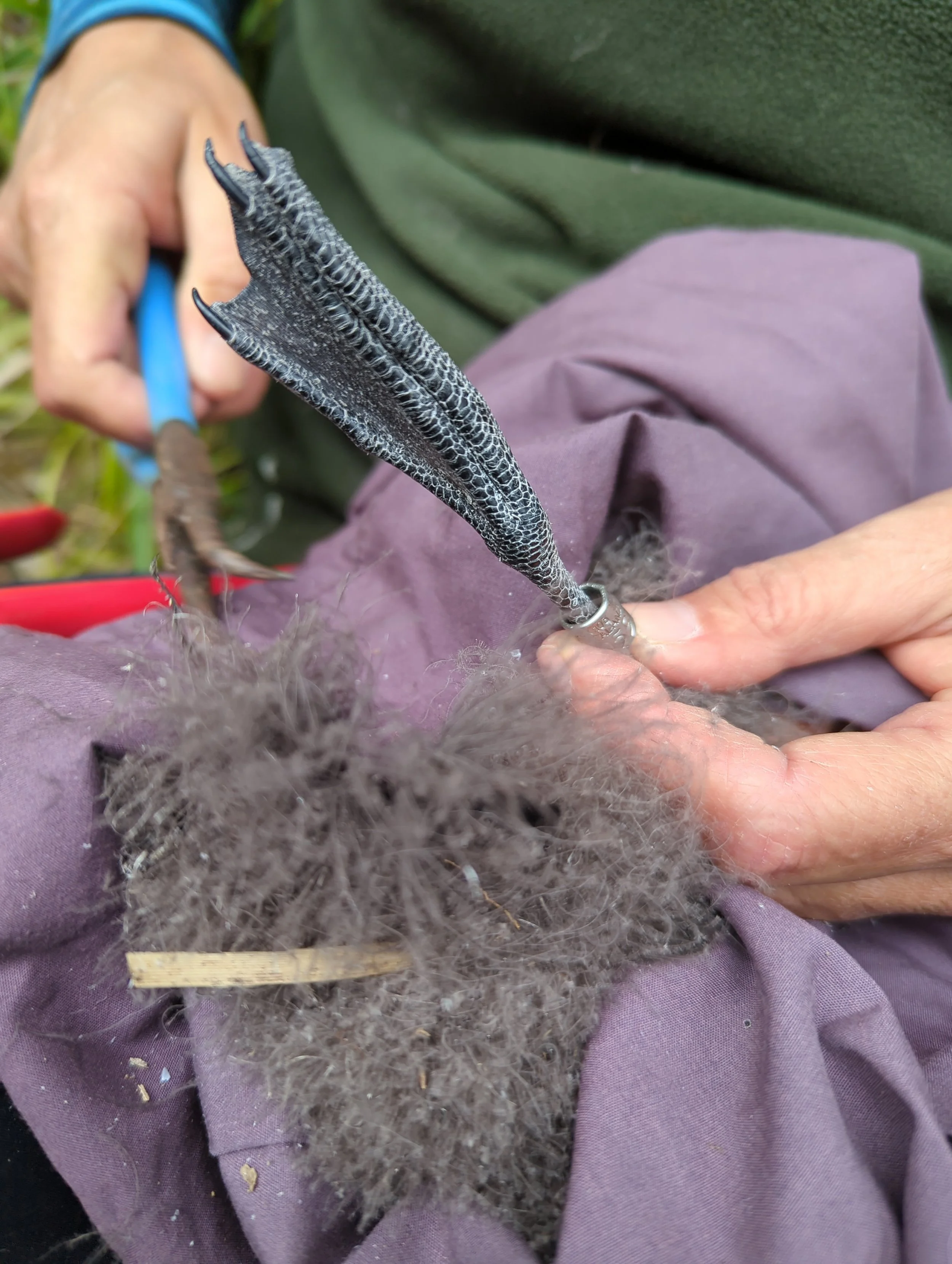
Our work
Ngā mahi
OUR WORK
Our work is focused on Karioi, its coastal forest and cliffs and adjacent marine habitats (that adjoin the West Coast North Island Marine Mammal Sanctuary) between Aotea and Whāingaroa Harbour. Karioi is also the headwaters of Toreparu Wetland, a nationally significant coastal wetland to the south of Karioi. Overall, we are working to protect biodiversity on more than 23,000 ha across the Whāingaroa landscape.
Just 200 years ago, seabirds filled our coastal forests and every year thousands of seabirds flocked to our coastlines to raise their chicks. It’s no coincidence we are known as the Seabird Capital of the World.
Until recently, the last remnant species of seabird on Karioi was struggling to breed, but due to extensive predator control and seabird monitoring, we’re now seeing kororā/little penguins waddling down the beach and our vulnerable seabirds, ōi/grey-faced petrels successfully breeding again in their burrows along the coast. Forest and wetland birds are also starting to flourish again!
Ngā whakatutukitanga
What we’ve achieved
Traps deployed
4,102
Bait stations
1,200
Predators removed
29,387++
Households trapping
480
Ōi chicks fledged
72
Working towards our desired outcomes
Ongoing monitoring and predator control give all native species the best chance at success. The Karioi Project monitors forest birds through five-minute bird counts, bat populations using acoustic monitoring and predator populations using tracking tunnels, wax tags and 24-hour wildlife cameras. Ōi and kororā burrows are monitored between April and December each year.
Wildlife monitoring
What started as a few short traplines has become a network of hundreds of kms of traplines and bait lines. We also encourage locals to trap in their own backyard. Overall, our network of multi-species predator control spans over 3000 hectares.
Predator control
Environmental education is a key element of the Karioi Project. We connect tamariki with nature, to foster an appreciation and understanding of ecology and the local environment. Our education programmes encourage kaitiakitanga, leadership and behavioural change while promoting well-being, hauora and resilience.
Education
The Karioi Project works with and within the Whāingaroa community. Between our education programmes, the Backyard Hub, and many dedicated volunteers, we are now involved with many households in the community. We are grateful for the input of our local steering group and the support of many local businesses and organisations.











